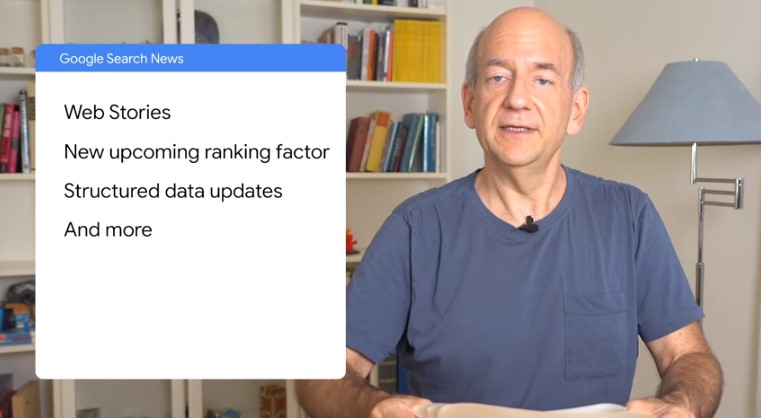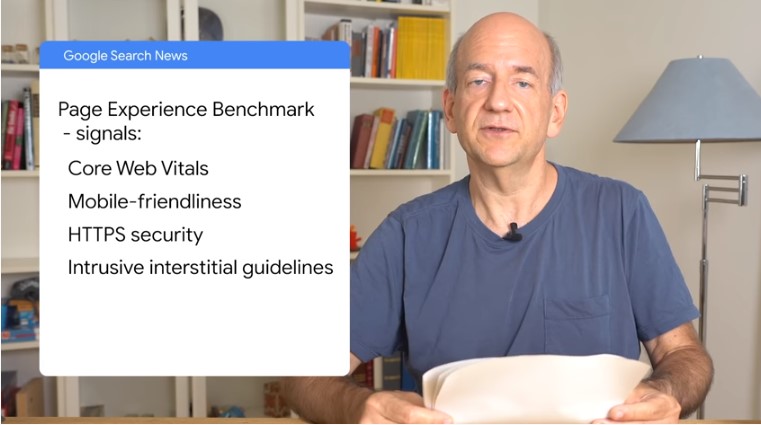The summary of the latest developments of Google Search
The company’s policy for smart working will continue until the summer of 2021, but the work of the Googlers goes on at very high intensity, as evidenced by the new episode of Google Search News in which John Mueller (still from home, Switzerland) reviews the latest news regarding the Research ecosystem. From updates on structured data and web stories through the great revolution of the Page Experience benchmark, here is what has changed in the Google world compared to the previous May recap.
Web Stories, a new approach to informative contents
It all begins with the latest developments in Web Stories, “an exciting and somewhat innovative approach to web contents” as John says. This format “is a clean way to create high-quality and bite-friendly information content directly on your website” and for users it is easy to view them and then move to the site itself.
It is a product that “under your control, like other parts of the site”, adds the Googler, “appears in Search, Google Images and Discover and which is possible to monetize”. As we know, from a technical point of view Web Stories are built on AMP (and in the beginning they were indeed called AMP stories), “so they are normal HTML pages”.
The WordPress plugin for Web Stories
So far, nothing really new for those who follow the work of Google (or our articles…), but the most interesting part is that it currently is on beta test a specific WordPress plugin that “makes it easier to create Web Stories directly in your own CMS”. For now it is “a bit rough, but it’s a great way to start discovering the Stories”, which according to John Mueller are a “new and fascinating perspective on public web contents”.
The Page Experience benchmark, next ranking factor
The talk then goes back to the Core Web Vitals, “a set of metrics fundamental to website developers to help build and improve the online user experience”, which are part of the wider Google Page Experience project, the next ranking factor of the search algorithm.
The Page Experience benchmark uses the core of web vitals – that is, the metrics – to measure the speed, interactivity and visual stability of pages, and will also use other search signals, such as mobile friendliness, HTTPS security and guidance on intrusive interstitial, to provide a holistic picture.
Compared to initial statements (which implied a start as early as January 2021), Mueller reveals that Google has not “decided when to start using these items as a ranking factor”, but “we’ll let you know at least six months before we actually start using them in Search”.
Tools updated to the new metrics
The Senior Webmaster Trends Analyst then recalls that Google has updated various popular development tools, such as Lighthouse and Pagespeed Insights, to give information about these metrics and make it easier to locate and improve web pages.
The thresholds used “for the Page Experience benchmark are based on a high-quality and verified user experience, which is achievable with data from the Chrome User Experience report”.
If you already want to check the performance of your site, you can first and foremost use the Google Search Console, where you will find “an overview graph already waiting for you”.
The latest news on structured data
Structured data have also been at the centre of Googler’s recent work, with new reports and elements that can be tested, as well as the deprecation of one of the two previous test tools.
Currently, Google has two testing tools for structured data: the first is “a general tool that shows information about all structured data and is called Structured Data Testing Tool“, while the second is “specifically to diagnose problems about what we show in the research results, namely the Rich Results Test“.
In the past, Mueller explains, “these differences have led to confusion, as there are many ways to implement structured data without being shown in Search,” and so Google decided to “focus on the Rich Results Test because people usually use test tools to improve the performance of the site in Google Search”, and this led to the decision to deprecate the other tool, the Structured Data Testing Tool.
Still about structured data, then, in the Rich Results Test now also appear the special announcements, licensable images and AMP article markups, while in the Search Console have been added specific reports for recipes and guided recipes markups.
More time for the switch to mobile first indexing
In recent weeks it has also been announced the extension of the date of the final move to mobile first indexing, because now the switch is expected by the end of March 2021 in order to “give websites a little more time to check and optimize parts of their pages for this indexing”, perhaps following the best practices on mobile first indexing that Google has released.
New guides for JavaScript
The last news of this summer edition of the Google newscast closes with a mention to the Search documentation, which now has sections expanded in the guides related to Javascript sites, with the addition of information on links, API history, URL fragments and 404 pages.
“If you make sites based on Javascript, it’s worth checking it out”, is the final suggestion of John Mueller, who then gives appointment to the next future recap.




